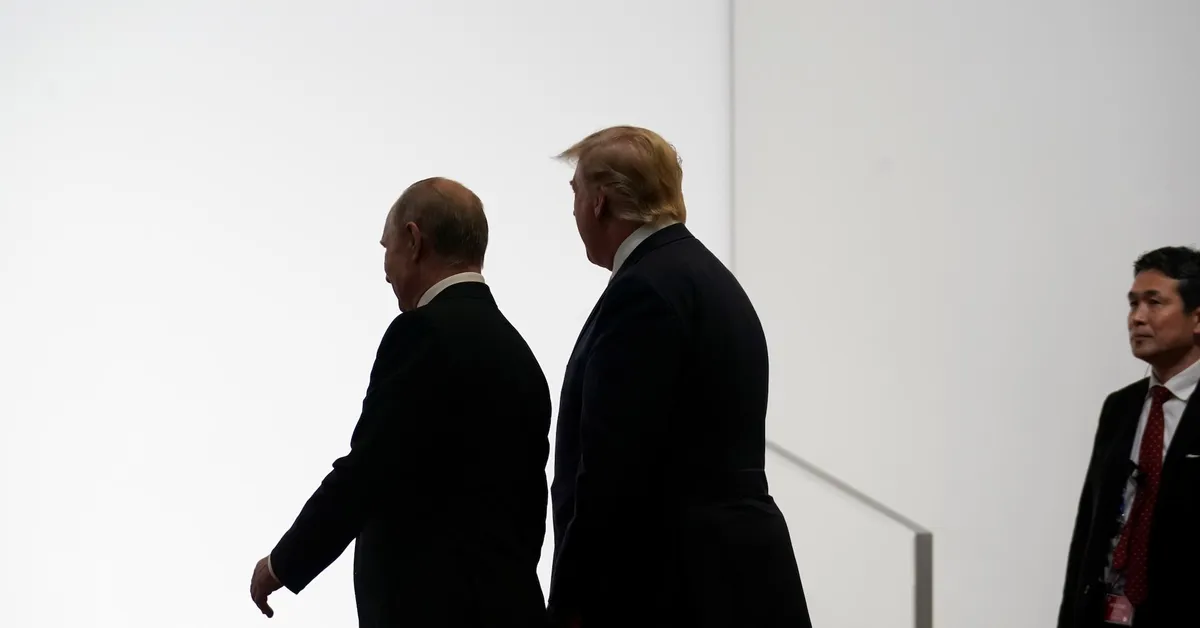
Washington and Istanbul – On May 15, 2023, significant developments occurred regarding the potential for peace talks between Moscow and Kyiv. U.S. President Donald Trump and Russian President Vladimir Putin both indicated they would not attend what might have been the first direct peace negotiations in three years. Instead, the Kremlin will dispatch a group of experienced technocrats to the meeting.
Just days earlier, on Sunday, Putin proposed direct negotiations with Ukraine to be held in Istanbul on Thursday, emphasizing that there would be no preconditions. However, late Wednesday, the Kremlin announced that the delegation would include key figures such as presidential adviser Vladimir Medinsky and Deputy Defence Minister Alexander Fomin, notably omitting Putin’s name from the list.
Following the announcement of the Kremlin's delegation, a U.S. official confirmed that Trump, who is currently on a three-nation tour of the Middle East, would not be attending the talks. While Trump had previously indicated he was considering participation, the absence of both the Russian and U.S. presidents diminishes expectations for any substantial breakthroughs in the ongoing conflict that began in February 2022.
Ukrainian President Volodymyr Zelenskiy has publicly challenged Putin to attend the talks, framing it as a contest to determine which side genuinely seeks peace. As Zelenskiy was en route to Turkey late Wednesday, a Ukrainian official mentioned that he would only participate in the discussions if Putin was present. In his nightly video address, Zelenskiy reiterated that Ukraine's approach to peace talks would hinge on clarity regarding Putin’s attendance.
Zelenskiy stated, "The answers to all questions about this war – why it started, why it continues – all these answers are in Moscow.” He emphasized that the resolution of the conflict depends significantly on global cooperation and support.
Trump has proposed that both sides agree to a 30-day ceasefire to halt what has become Europe's largest land conflict since World War II. On Wednesday, a Russian lawmaker indicated that discussions could also revolve around a significant prisoner of war exchange. While Zelenskiy supports an immediate ceasefire, Putin has insisted that negotiations must first ascertain the specifics of such a truce.
In the backdrop of these negotiations, Trump has expressed growing frustration with both Russia and Ukraine, as he seeks to facilitate a peace settlement. He has suggested that he would consider implementing secondary sanctions against Moscow if it appears to be obstructing the peace process. U.S. officials have alluded to the possibility of imposing financial sanctions, as well as secondary sanctions targeting buyers of Russian oil.
The U.S. delegation attending the talks in Turkey includes Secretary of State Marco Rubio, along with senior envoys Steve Witkoff and Keith Kellogg. Ukrainian Foreign Minister Andrii Sybiha confirmed that he met with Rubio early Thursday to discuss Zelenskiy’s vision for peace and to coordinate positions ahead of this crucial week.
Medinsky and Fomin, part of the Russian delegation, were involved in the previous negotiations that took place in Istanbul during the early weeks of the war. Direct talks between Ukrainian and Russian negotiators last occurred in March 2022, shortly after Putin initiated the invasion, which he refers to as a special military operation aimed at eradicating neo-Nazi elements in Ukraine. Conversely, Ukraine and its allies describe the invasion as an unprovoked act of imperial aggression.
Currently, Russian forces control approximately one-fifth of Ukraine, and Putin has offered few concessions. His recent proposal for talks in Turkey aims to establish a durable peace, referencing the previous 2022 negotiations and a failed draft agreement. The draft suggested that Ukraine would accept permanent neutrality in exchange for security guarantees from the five permanent members of the U.N. Security Council, including Britain, China, France, Russia, and the United States, as well as other nations such as Belarus, Canada, Germany, Israel, Poland, and Turkey. However, Ukrainian officials assert that agreeing to any form of neutrality is a red line they will not cross.
As the situation evolves, all eyes remain on the upcoming negotiations in Turkey, with the potential for significant implications for the future of Ukraine and its relationship with Russia.